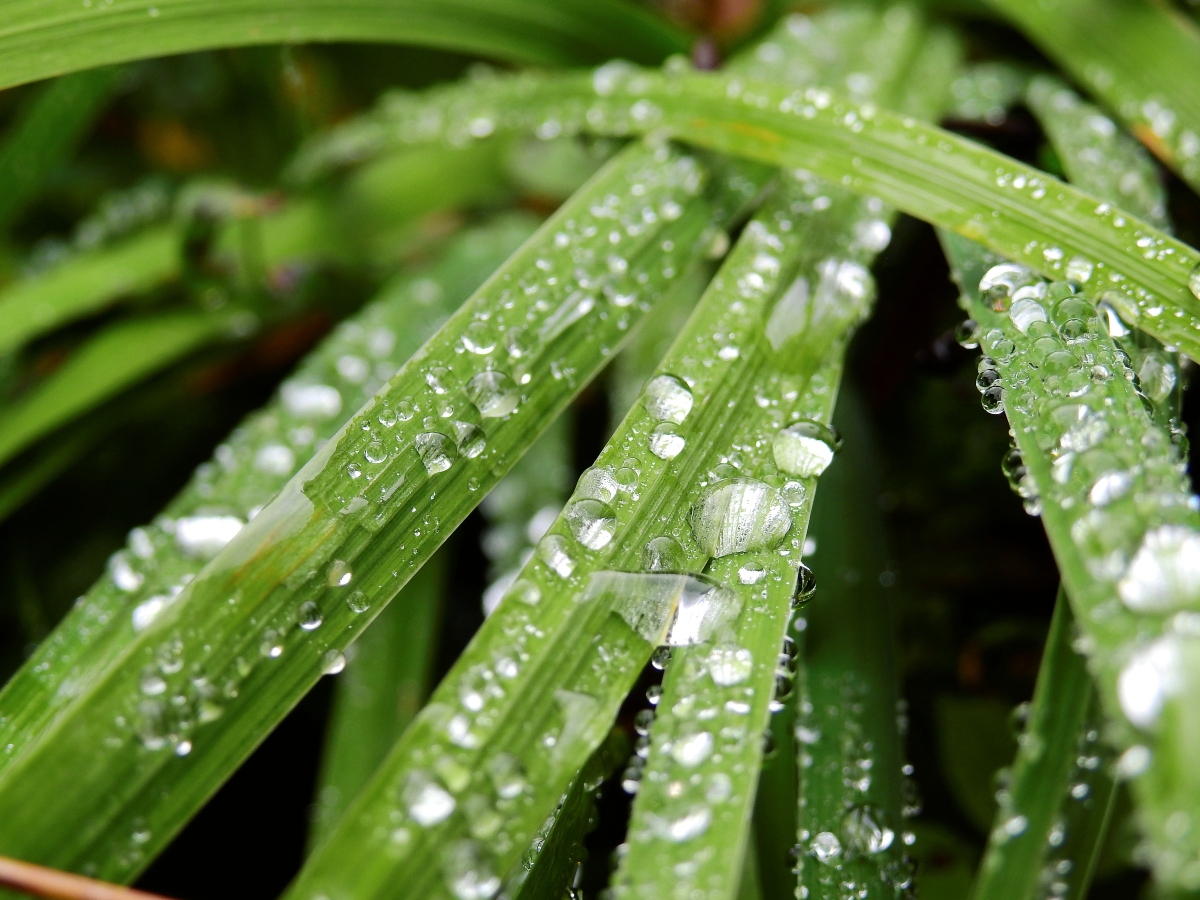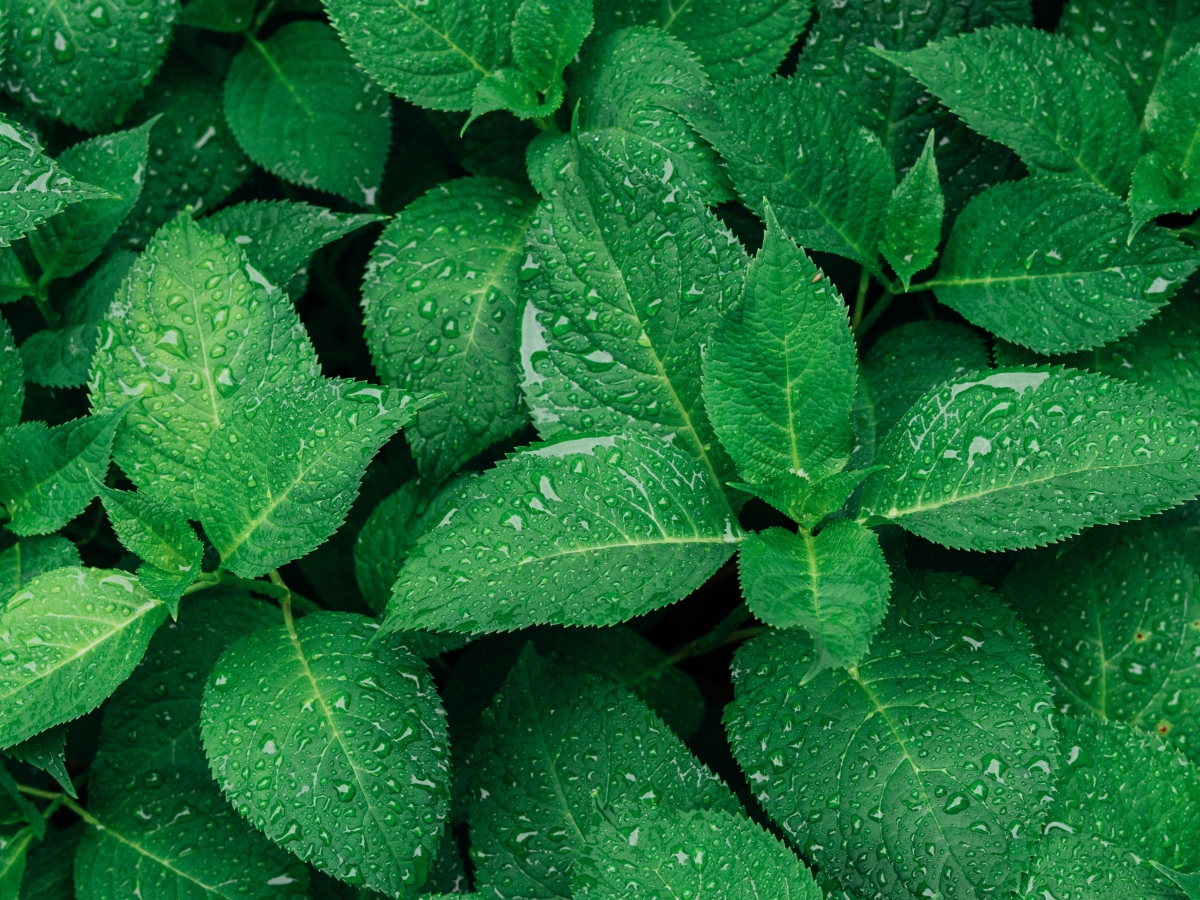Water is the lifeblood of plants! It plays a crucial role in photosynthesis, nutrient uptake, turgor pressure, transpiration, structural support, cooling, and temperature control. While there are many water sources, you may wonder, “Is rain water good for plants?” and “Do plants love rainwater?”
Rainwater is suitable for plants. Rainwater is naturally soft and contains fewer minerals, salts, and other impurities that can harm plants. It also contains small amounts of nitrogen essential for plant growth. Many gardeners prefer using rainwater over other sources to water their plants.
If you’re wondering whether to water your plants with rainwater, this article is for you. We’ll highlight the benefits of rainwater on plants and why plants sometimes prefer rainwater over other sources.
Is Rain Water Good For Plants?
Rainwater is always the best choice for your plants. Its natural purity and lack of harsh chemicals such as chlorine and fluoride promote the soil’s microbial life. As a result, it creates a healthy ecosystem for plants to absorb nutrients and promote overall plant health. Rainwater is also a good nitrogen source vital for plant growth and reproduction.
Reasons Why Plants Love Rainwater
You’ve probably seen your garden or farm turn vibrant after rainfall. The plants become more muscular and stand straighter when using other types of water. While plants love water, they tend to love rainwater more. Here are several reasons your plants prefer rainwater.

1. Rainwater Is Naturally Pure
Rainwater is naturally soft, meaning its relatively free from chemicals, salts, excessive minerals, and other pollutants that are always present in other water sources. For example, sodium is added to tap water to soften it, fluoride for strong and healthy teeth, and chlorine for disinfection. While water containing these chemicals may not have health effects on humans, it may negatively impact plant health.
Frequent use of tap or groundwater can lead to the buildup of salt, and minerals such as calcium and magnesium, impeding plants’ water uptake. When you water your plants with rainwater, you give them an environment where they thrive naturally.
2. Rainwater Contains Perfect pH for Plants.
Rainwater is favorable for plants as it is slightly more acidic than tap water, mainly because of dissolved carbon dioxide. Most plants thrive well in mildly acidic water with pH levels between 5.5 to 6.5. Typically, rainwater pH ranges between 5.0 to 5.5, helping soil maintain optimal levels where plants can easily absorb essential nutrients.
3. Contains More Oxygen Content
Rainwater contains more oxygen than tap water as it absorbs it from the atmosphere as it falls. High levels of dissolved oxygen result in healthy plant growth due to increased plant resistance to stress & disease. Adequate oxygen in the soil also boosts root growth, nutrient uptake, and plant strength.
4. Rainwater Releases Essential Nutrients From the Soil
Nitrogen is crucial for plant growth, metabolism, and productivity. Its also essential for chlorophyll, which gives the green color to plants. Raindrops collect nitrogen in the form of nitrates as it passes the atmosphere. Furthermore, rainwater enriches your soil by unlocking micronutrients such as zinc, manganese, boron, copper, and iron, essential for plant growth.
Besides being beneficial to plants, gardeners or farmers should consider using rainwater for environmental and economic sustainability. Rainwater helps conserve freshwater resources and reduce reliance on municipal water, which requires energy-intensive purification processes. In addition, by harvesting rainwater, you minimize stormwater runoff from your property.
Collecting rainwater to water your plants can save you money, which you could use to pay your utility water bill.
When to Protect Plants From Excess Rainfall
While rainwater benefits plants, too much water can lead to poor growth and damage. Its time to protect your plants if:
- There are heavy downpours: Heavy downpours can cause damage to young plants as they are not strong enough and cause plant roots to die. Heavy rainfall can lead to soil erosion and water clogging.
- Strong winds accompany rain: Rainfall can come with strong winds, leading to physical plant damage such as bending, breaking, and toppling over.
- You have water-sensitive plants: Some plants are more sensitive to excessive moisture, meaning too much rain can lead to the roots rotting and fungal diseases. Protect your plants from too much water when there is prolonged rainfall.
- There are signs of pests and diseases: Excessive rain can create favorable conditions for the spread of pests and diseases, making it essential to monitor your plants.
- Your area is prone to soil erosion: If you live in a location prone to erosion, even sufficient rainfall can wash away soil in your garden or farm. This leaves the roots exposed, meaning they can easily get damaged. Erosion also reduces soil fertility.
A good thing is you can reduce the damage excess rainfall can cause your plants. Here are a few measures to take to protect your plants against damage from too much rain:
- Ensure adequate drainage in your garden.
- Support taller plants by staking or tying them to sturdy supports.
- Provide enough aeration by trimming overgrown vegetation or branches that may restrict airflow.
- Mulching helps protect soil and plants from heavy rain.
- Cover young and fragile plants with plastic sheeting or a tarp.
- Use organic pest controls or fungicides
- Prune and trim any damaged or diseased branches
- Clear fallen leaves to prevent disease spread
- Implement erosion control measures such as terracing, mulching, or building a retaining wall.

Tips for Harvesting Rainwater
While there are different ways to collect rainwater, rooftop rainwater harvesting is the most common method. Installing a rainwater harvesting system is easy, and you can do it yourself (DIY). The changes in your water bill will amaze you once you have a system to collect rainwater from your rooftop. Here are some ways to harvest rainwater:
- Check and understand the rules and regulations for harvesting rainwater, as some states have restrictions.
- Know what you want to use the water for. If you want to use rainwater for irrigation and other domestic uses, ensure the material on your roof is safe, and you have a filtration system.
- Decide on the storage size, especially if you want to use the water for purposes other than irrigation.
- Get the equipment, including barrels, tanks, gutters, downspouts, pipes/conduits, and coarse mesh.
- Design your system. This involves installing the gutters, downspouts and directing them to the barrels/tanks.
- Ensure that you maintain your water harvesting system regularly. This includes cleaning the storage tanks and gutters to remove accumulated sludge and dirt.
Frequently Asked Questions (FAQs)
You probably relate to some of these frequently asked questions regarding rainwater use on plants:
Why Do Plants Do Better in Rainwater Than in Tap Water?
Rainwater is free from salt, chemicals, and other contaminants found in tap water or other water sources. Its also slightly acidic, which is ideal for nutrient uptake and the overall health of your plants. Furthermore, its higher in nitrogen, which is crucial for plant growth.
How Long Can I Store Rainwater?
You can store rainwater indefinitely. With more extensive storage and taking the proper measures to maintain its quality, you can store rainwater for months, a year, or even longer.
Does Rainwater Contain Nutrients That Benefit Plants?
Yes. Rainwater contains many nutrients beneficial to your plants, including nitrogen, phosphorus, potassium, calcium, magnesium, and chloride. These nutrients may be in smaller quantities but are well-balanced, contributing to healthy plants.
Does Rainwater Help Improve Soil Quality?
Yes. Rainwater helps improve your soil quality in different ways. Due to its acidity, it increases the bioavailability of nutrients such as zinc, copper, iron, and manganese. Sufficient rainfall also flushes away salts and other mineral deposits accumulated in the soil, providing the plants a healthy environment for thriving.
Can I Use Rainwater for All Types of Plants?
Yes. You can use rainwater for both garden and indoor plants.
Do I Need Water Filtration for My Rainwater?
A water filtration system for your rainwater depends on what you’re using the water for. If you want to use it for non-potable purposes like washing toilets, watering plants, and doing laundry, a water filtration system might not be necessary. However, a filtration system is recommended if you want your rainwater to be potable and use it for drinking, cooking, or cleaning dishes.
Make Your Rainwater Potable With ONIT Home Filtration Systems
So, is rain water good for plants? Yes. Using rainwater for your plants has many benefits. Its high purity, slight acidity, and micronutrients lead to increased plant growth and overall plant health. Besides rainwater being beneficial to plants, you can design a harvesting system to store your water for other use.
With a well-designed system, you can use the harvested water for all your domestic needs, from drinking to cooking. You only need a water filtration system, which we can help you design here at ONIT Home. We also provide free water testing to ensure you have good quality water, whether rainwater, tap water, or well water.
Need clean, potable water? We’re ONIT! Call us today at 1-833-433-0331 to speak to our representative.



